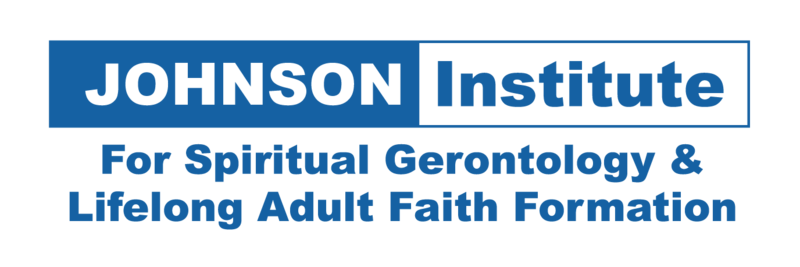Ten Characteristics That Predict Unsuccessful Aging: Part 1 of 2
May 23 2017
Dr. George Valliant devoted his entire professional life to studying the developmental progression of Harvard graduates. This study, known as the Grant Study, is perhaps one of the most comprehensive, longitudinal overviews of human development. Valliant’s findings of how these graduates aged offer us deeper understanding of what it means to be ageless. Valliant identified ten factors of unsuccessful aging which can paradoxically give us a keener insight into living Ageless in the Lord. In this writing I’ll discuss the first five; next time we will look at factors six through ten.
1. Tendency to blame others
Persons who blame are: judgmental, reproachful, critical, hard to compliment, arrogant, prone to ridicule, sarcastic, and condescending. If blaming prevents agelessness, its opposite, the virtue of gratitude promotes agelessness. Gratitude includes: profound thankfulness, praising God, seeing the sacredness of life, recognizing the giftedness in which you live, appreciating God’s amazing abundance and recognizing the goodness in others.
2. Rigid opinions… unable to listen
Those who are unable to listen exhibit the human condition of obtuseness: dull, blunt, cold, numb, unfeeling, apathetic, and avoidant of emotion. The opposite of obtuseness is the virtue of empathy: the ability to walk in another’s shoes, being fully “with” another, understanding abundantly the experiences of another and becoming acutely aware of another’s feelings. Empathy then would be our second key to agelessness.
Those who are unable to listen exhibit the human condition of obtuseness: dull, blunt, cold, numb, unfeeling, apathetic, and avoidant of emotion. The opposite of obtuseness is the virtue of empathy: the ability to walk in another’s shoes, being fully “with” another, understanding abundantly the experiences of another and becoming acutely aware of another’s feelings. Empathy then would be our second key to agelessness.
3. Obsession with Life’s Inequities
Those who are obsessed with what is wrong with life experience the internal condition of contention. Contention includes: being defensive, easily upset, chronically unfriendly, contrary, quick to anger, suspicious, confrontive, and provoke controversy. The opposite of contention is the virtue of peace: finding harmony and concord in self and others, living in God’s security and serenity, living where love abides, and treasuring the gift of tranquility.
Those who are obsessed with what is wrong with life experience the internal condition of contention. Contention includes: being defensive, easily upset, chronically unfriendly, contrary, quick to anger, suspicious, confrontive, and provoke controversy. The opposite of contention is the virtue of peace: finding harmony and concord in self and others, living in God’s security and serenity, living where love abides, and treasuring the gift of tranquility.
4. Lack of Intimate Friends
Those who find it difficult to share themselves with others live in an emotional swirl of insecurity. Insecurity includes: emotional ‘shakiness’, feeling uncertain or unsafe, lacking inner confidence, feeling vulnerable, anxious, and fearful of shame or potential rejection. The opposite of insecurity is the virtue of trust: assured reliance on God, a mature dependence on love, believing and expecting confidence that love will prevail, and consigning one’s life to God’s love.
Those who find it difficult to share themselves with others live in an emotional swirl of insecurity. Insecurity includes: emotional ‘shakiness’, feeling uncertain or unsafe, lacking inner confidence, feeling vulnerable, anxious, and fearful of shame or potential rejection. The opposite of insecurity is the virtue of trust: assured reliance on God, a mature dependence on love, believing and expecting confidence that love will prevail, and consigning one’s life to God’s love.
5. Inability to become the “Wise Elder”
Those who cannot take on the role of elder become elderly; they live in the shadow of inadequacy: not trusting in one’s self, not being “enough”, clouded thinking, persistent thoughts of personal inferiority, disregard for truth and neglectful of self. The opposite of inadequacy is the virtue of wisdom: discerning spiritual qualities in self and others, possessing an illuminated and solid insight, being spiritually intuitive and recognizing the most prudent, sane, and sensible course of action.
Those who cannot take on the role of elder become elderly; they live in the shadow of inadequacy: not trusting in one’s self, not being “enough”, clouded thinking, persistent thoughts of personal inferiority, disregard for truth and neglectful of self. The opposite of inadequacy is the virtue of wisdom: discerning spiritual qualities in self and others, possessing an illuminated and solid insight, being spiritually intuitive and recognizing the most prudent, sane, and sensible course of action.
These five (of ten) give us insight into some of the facets of the diamond of Living Ageless in the Lord. I’m indebted to George Valliant for his perseverance and truth-seeking in search of healthy living across the lifespan. You may want to consult his book Aging Well. Look for items 6-10 in my next writing. Until then…
Always Live Ageless in the Lord,
Richard P. Johnson, Ph.D., PCSG
Note: The above is just a very small part of what you will learn about Living Ageless in the Lord in the Johnson Institute for Spiritual Gerontology Course 100. Click here for more information on Course 100.
